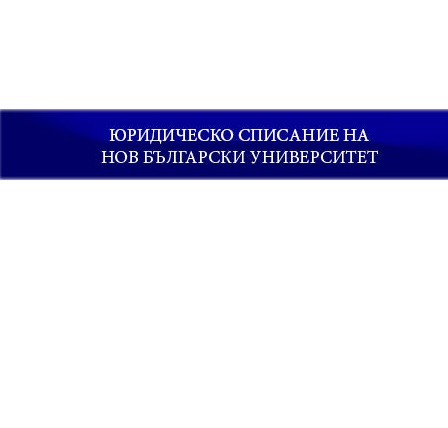Конституционният статут на президента на Република България
Constitutional status of the President of the Republic of Bulgaria
Author(s): Tsveta MonovaSubject(s): Politics / Political Sciences, Social Sciences, Education, Law, Constitution, Jurisprudence, Constitutional Law, Civil Law, Public Law, Higher Education
Published by: Нов български университет
Keywords: Constitutional status of the President of the Republic of Bulgaria
Summary/Abstract: The President, as Head of State, is outside the system of the three authorities in our country where the form of government is a parliamentary republic. However, it exercises powers similar in nature to those of senior executives, although it is not an executive body. In a most general aspect, the president embodies the unity of the nation. And here is the place to note that his prototype can be sought in the monarchical institute, whose status is aligned with the republican form of government. Therefore, he is called upon to balance the relations between the three authorities - legislative, executive and judicial. In essence, the functions of the President can be systematized in three main groups: representative, in view of the fact that he represents the Republic of Bulgaria in international relations (stemming from the provision of Art. 92, para 1 of the Constitution of Bulgaria), and in doing so also conducts political arbitration with regard to the state structures. Through his authority as the head of state, the president also helps to create conditions for effective and flexible.
Journal: Юридическо списание на Нов български университет
- Issue Year: 2011
- Issue No: 1
- Page Range: 32-48
- Page Count: 17
- Language: Bulgarian

